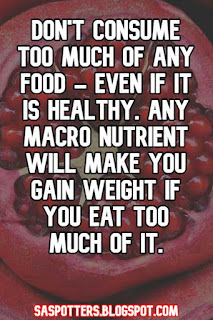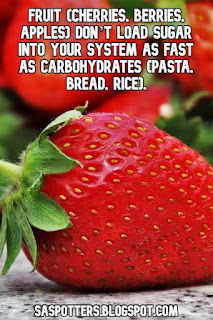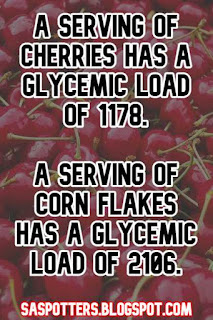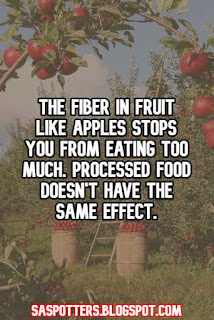This article is written by Rob Maxwell, M.A. Exercise Physiology, CSCS and ACSM CPT from www.fittothemax.net. Follow him on Twitter.
Sugar might be the most misunderstood nutrient on earth.
Does sugar make you fat? Is sugar bad for you? Should you eat it?
Before we can answer any of these questions regarding sugar, we really need to understand what it is.
Sugar is destroyed in the media from Paleo and other health groups. We need to be careful about what we read and hear.
We should learn for ourselves instead of buying into headlines without looking at the actual facts.
What is sugar?
Sugar is a carbohydrate. It is either a monosaccharide or a disaccharide.
Carbohydrates are polysaccharides, disaccharides or monosaccharides.
Polysaccharides
Polysaccharides are what we call complex carbohydrates.
Polysaccharides are either fiber (the indigestible part of a plant), starch (the stored form of glucose in a plant), or glycogen which is the stored form of glucose in humans.
Disaccharides
Disaccharides are two bonds of monosaccharides.
They are lactose (galactose and glucose), sucrose (fructose and glucose), and maltose (two monosaccharides of glucose).
Monosaccharides
Monosaccharides are simple sugars with one chain.
There are three types: glucose (the sugar we think of as blood sugar), fructose (sugar in fruit), and galactose (sugar found in milk).
Disaccharides and monosaccharides are called sugar
A polysaccharide (complex carb) is rarely ever called sugar.
What we call table sugar is sucrose - the sweetest sugar.
Monosaccharides, disaccharides, and polysaccharides were all classified as sugars in the early days of research. They were all considered complex carbohydrates and we were encouraged to eat them abundantly.
We need to pump our breaks for now and understand a little more about this before we jump to that conclusion.
Your body needs sugar
Your body runs on sugar. The sugar in your bloodstream is glucose. Our muscles and brains need sugar to function. We cannot do anything without glucose in our bloodstream.
We store glucose in our body in the form of glycogen and we store glycogen in our muscles and liver.
We store up to 500 grams of it. This is enough for 2000 calories (about 160 minutes of running) of energy.
Natural sugar is healthy
When we talk about naturally occurring sugar, we refer to all the forms of carbohydrates that are found in fruit, vegetables, grains, beans, and dairy. These are all carbohydrate food sources.
The only non-plant sources of carbohydrates are dairy products.
When you consume any of these forms of carbohydrates you get their natural sugars.
When you eat a banana, that sugar is natural. When you consume potatoes you are consuming natural, non-additive sugar. When you eat beans like black beans, you are consuming the natural sugar that they contain.
Naturally occurring carbohydrates are healthier for you than additive sugars (found in processed foods) because of the fiber in these foods. These natural foods also have important vitamins and minerals.
We don't get the vitamins, minerals and fiber when we consume the same amount of sugar in synthetic food. This makes the food less healthy.
Can you eat mass quantities of naturally occurring carbs because they are healthier? You shouldn't eat anything without moderation.
Carbs get a bad rap. They get blamed for making people fat. That is not true.
Any macro nutrient that is eaten too much will make you gain fat.
Naturally occurring carbs are healthier for sure, but we still want to modify how much we eat.
There are no such things as free lunches.
The sugar in processed food is unhealthy
Crackers, chips, soda, many breads and pastas are all processed carbohydrates. They can be yummy! Taste tempts us to sacrifice micro nutrients for the same amount of calories.
Do we really want to eat out of a test tube?
A gram of glucose in a tomato is the same as the gram of glucose in a Snickers bar. The Snickers bar has zero naturally occurring vitamins, minerals, and fiber.
Due to all of the synthetic stuff placed in the Snickers bar, it tastes yummy. We want to eat more.
Naturally occurring foods can taste very yummy too.
Glycemic index
Glycemic index is a measure of how fast a carbohydrate converts into sugar when you eat it.
The faster it converts to sugar, the higher the glycemic index. Low glycemic index carbohydrates take longer to convert into sugar.
Here is a list of foods according to their glycemic index.
We used to think of 'sugary' foods like fruits as bad for us because we called them simple sugars. We used to think of all complex carbohydrates like grains as good for us because they were polysaccharides.
Now we know that this is not the case.
Some of what we think of as simple sugars, like fruit, have a low glycemic index. This includes cherries, berries, and green apples.
Many complex carbohydrates have a high glycemic index. This includes white pasta, many types of bread (including whole wheat bread) and white rice.
Glycemic load
We must pay attention to the glycemic index (how quickly sugar goes into your bloodstream) and glycemic load (how much sugar goes into your bloodstream).
Glycemic load is the glycemic index times the grams of carbohydrates in that food.
For example, the glycemic index of cherries is 62. A serving of cherries has 19 grams of carbs. Doing that math, the glycemic load of a serving of cherries is 1178.
In you eat 3 servings then the load is 4712.
Now let us look at an example of a high glycemic food such as the cereal Cornflakes.
Cornflakes have a glycemic index of 81. A serving of corn flakes has 26 grams of carbohydrates. This load now equals 2106.
If you eat a single serving of cornflakes, you get more sugar (2106) than a serving of cherries (1178).
On the other hand, three servings of cherries give you more glucose (4712) than a single serving of cornflakes.
The higher the glycemic load, the more glucose will pour into your cells. Serving size is important.
Serving size matters
Like everything, serving size matters.
We can eat too many cherries, which has a low to moderate glycemic index, and flood our cells with glucose.
We can eat fewer corn flakes, which have a very high glycemic index, and consume less glucose.
Naturally - no pun intended - the lower glycemic index foods are going to be your best bet when eaten moderately.
It really comes down to simple math.
The nutrients surrounding sugar matters
Sugar is sugar. I explained what sugar is. The sugar in fruit is the same as sugar in candy as far as molecules go.
The surrounding nutrients in natural foods versus synthetic foods are not the same.
You can eat sugar in an apple. It comes with fiber. You will fill up quicker and not eat as much. Who finishes a bag of apples and feels guilty about it?
You can eat white bread. It is made up of sugar, but has zero fiber. Chances are you will eat more because you won't feel full.
The apple, which is natural, will also have vitamins and minerals that come with it naturally.
The white bread will have all these micro nutrients stripped away.
Natural foods are full of antioxidants and phytochemicals which boost our immune system. Processed foods are totally void of these wonderful little gifts.
What would you prefer? Mother Nature knows what she is doing.
If we eat as natural as possible, our body will thank us.
We don’t have to be perfect. It is great to shoot for better.
This article is written by Rob Maxwell, M.A. Exercise Physiology, CSCS and ACSM CPT from www.fittothemax.net. Follow him on Twitter.







No comments:
Post a Comment